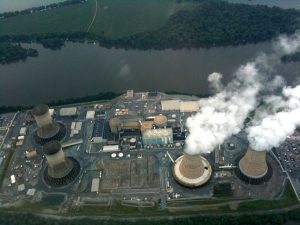587 item(s) were returned.
This week, a total solar eclipse crossed the United States for the first time in nearly a century. The eclipse dimmed the sun for several hours, leaving utilities questioning the impact on solar power generation and whether grids are prepared to handle state policies mandating a greater renewable energy mix. As solar output plunged along the route of totality, grid operators and utilities were forced to manage the drop by bringing on greater amounts of natural gas and hydro. Those states with high solar producing capacity, such as California and North Carolina, were significantly impacted by the path of the… [more]
View InsightWith programs operating in Washington, DC and San Francisco, CA, the Clean Energy Leadership Institute (CELI) is a 501(c)(3) nonprofit dedicated to developing a diverse community of experts to lead the transition to a clean energy economy. CELI believes technological innovation, financial creativity, and increasing public engagement are essential to solving our complex global energy and climate challenges. We equip young professionals entering the workforce with the skills and expertise to capitalize on these trends and lead the transition to a clean energy economy. Over the last five years, CELI has trained over 500 young professionals across 250+ organizations in… [more]
View InsightFormer Executive Director
Sierra Club
In late July, Hunter Harrison, the CEO of CSX railway corporation, declared that his railroad, founded to haul coal, and still getting a fifth of its revenue from coal, would no longer invest capital in its coal business – neither new locomotives or track investments designed to support its coal business. Harrison was blunt as to the reason. “Fossil fuels are dead,” the CSX CEO said. “That’s a long-term view. It’s not going to happen overnight. It’s not going to be in two or three years. But it’s going away, in my view.” The same week, Morgan Stanley reported that… [more]
View InsightThe Clean Power Plan (CPP), the signature piece of environmental regulation from the Obama Administration, is now facing an uncertain future. Following President Trump’s request for a review of the rule and the June 1st announcement that the U.S. will be leaving the Paris agreement, the President is widely expected to eliminate or significantly change the CPP. Review by the Office of Management and Budget (OMB) typically takes about 60 days, meaning that the review period may be drawing to a close. The CPP has faced criticism from both sides of the aisle, as well as from industry and environmental… [more]
View InsightFormer Clean Energy Project Manager
Environmental Defense Fund
Earlier last month, the New York City Council introduced an energy efficiency bill package designed to make buildings more energy-efficient. Given that about 70 percent of greenhouse gas emissions in the City come from heating and cooling buildings, regulating how buildings manage energy is crucial to reaching Mayor Bill de Blasio’s goal of reducing citywide emissions 80 percent below 2005 levels by 2050. While these bills represent an important step in the right direction, there are opportunities to strengthen them so the intended reduction in pollution is more effective and long-lasting. For example, Int. 1644 proposes the establishment of a… [more]
View InsightPublisher
Atomic Insights LLC
In 2015, Mark Z. Jacobson released a report claiming via modeling that 100% of the energy – not just the electricity – needed by the U.S. could be reliably provided at a reasonably low cost by a mixture of wind, water and solar energy. Jacobson’s paper, Low-Cost Solution to the Grid Reliability Problem with 100% Penetration of Intermittent Wind, Water, and Solar for All Purposes, was recently challenged when the Proceedings of the National Academy of Sciences published a paper titled Evaluation of A Proposal for Reliable Low-Cost Grid Power with 100% Wind, Water, and Solar. The new paper, developed… [more]
View InsightPresident
Reishus Consulting, LLC
With American federal climate policy in retreat after President Trump announced his intention for the US to withdraw from the Paris Accords, where will climate change activists focus their efforts? While recent announcements coming from local politicians indicate that cities from Portland to Pittsburgh, plus many states, are intent on moving forward with strategies to decarbonize, corporations form a key sector whose willingness to embrace strategies to avoid corporate climate risk matters greatly. Do shareholder activists play a critical role in forcing large businesses, especially those firms holding fossil fuel assets, to acknowledge risks and adopt strategies that directly address… [more]
View InsightProposed in 2006, Southern Company’s (“Southern”) Kemper County Power Generation Facility (“Kemper”) was initially viewed as a flagship demonstration project for “clean coal” technologies like carbon capture and sequestration (“CCS”). Eleven years on, Southern has announced it is “immediately suspending start-up and operations activities” on the gasifier units and the facility “will continue to operate using natural gas pending the Mississippi Public Service Commission’s decision on future operations.” The 582 MW plant was designed to convert lignite coal into a synthetic gas with a CCS system capturing more than half of the emissions. Since 2012 however, Kemper has faced years… [more]
View InsightPresident
Kadak Associates, Inc.
If climate change is considered a real concern by most government officials, why are policymakers and politicians not acting to keep reliably operational nuclear plants from being prematurely shutdown? As most know, nuclear-generating plants, such as Three-mile Island in Pennsylvania, produce essentially zero carbon dioxide and other climate-altering gases. Once the United States had 104 operating nuclear plants producing over 60% of the nation’s clean energy. Today that number is down to 99. Nuclear plants used to generate about 20% of the electricity consumed. Today it is about 17% and declining. The most recently announced shutdown was the Three Mile… [more]
View InsightProject Manager, EDF+Business
Environmental Defense Fund
The Trump administration recently released its full federal budget proposal, which could slash funding for the DOE Office of Energy Efficiency and Renewable Energy (EERE), related offices and programs, and damage a future clean energy economy. EERE has been at the forefront of supporting successful public-private partnerships and innovative, clean energy entrepreneurs. Funding that nurtures new businesses without requiring their owners to give up any stake in their companies can be make-or-break for the early-stage startups that drive innovation. When government, well-positioned to make this kind of unique investment, puts forth taxpayer dollars, it encourages the private sector to buy-in… [more]
View Insight







